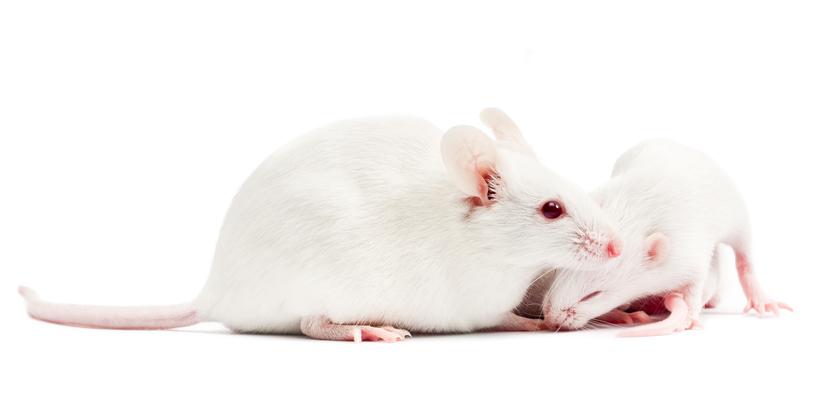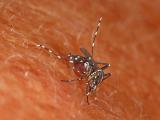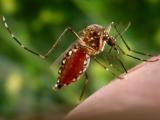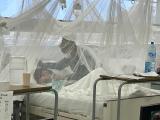In findings that could one day pave the way for a new strategy to protect pregnant women and their babies against Zika virus, a subset of antibodies against dengue virus not only protected mice against both diseases, it also prevented damage to their offspring.
Though the approach still needs to be tested in larger animals and then humans, researchers envision using the antibodies to treat pregnant women before Zika infection or developing a dual Zika-dengue vaccine based on the antibody target. A team from the Washington University School of Medicine in St. Louis and Imperial College London published their findings yesterday in Nature Immunology.
Benefits against infection, fetal damage
Because dengue and Zika are related flaviviruses, the researchers wanted to see if antibodies that protect against dengue infection may also be effective against Zika virus. Using a panel of highly protective dengue antibodies from blood of patients from Southeast Asia identified earlier by a team from Imperial College London, the investigators focused on a subgroup called anti-EDE1.
In the first phase of the study, the group infected nonpregnant adult mice with Zika virus, administering antibodies 1, 3, or 5 days later. Control mice were given placebo. Within 3 weeks of infection, more than 80% of the untreated mice died, but all of the mice that got the dengue antibody within 3 days of infection survived, as did 40% of the animals treated 5 days after infection.
To assess if the antibody could protect fetuses, the researchers experimentally infected female mice with Zika virus on the sixth day of pregnancy, followed up by a dose of the antibody or placebo 1 or 3 days after.
At day 13 of gestation, the amount of Zika genetic material was 600,000 times lower in the placentas and 4,900 times lower in fetal heads in mice treated 1 day after infection, compared with the ones that received placebo. The researchers found that the effect wasn't as powerful when mice got the antibody 3 days after infection; treatment lowered viral genetic material in fetal heads 19-fold and in placentas threefold.
Overcoming clinical challenges
The much higher effectiveness when the antibody is given soon after infection poses challenges with Zika treatment, because patients don't typically know when they're infected, given the high number of asymptomatic cases that occur. The researchers said, however, that women could be given the treatment as soon as they know they're pregnant, a tactic that would temporarily shield them from Zika virus, similar to antibody treatment for other diseases such as rabies.
Another challenge with an antibody treatment strategy based on dengue is avoiding antibody-dependent enhancement (ADE), which could worsen dengue symptoms if the patient is infected with a different strain or even trigger a more severe Zika infection.
To avoid ADE, the scientists slightly modified the antibody in four spots, disabling its ability to worsen dengue infection.
Michael Diamond, MD, PhD, senior author and professor of medicine at Washington University, said in a press release from the school that the antibody was still protective after the mutation. "So now we have a version of the antibody that would be therapeutic against both viruses and safe for use in a dengue-endemic area, because it is unable to worsen disease."
Next steps
The investigators said they're trying to identify how much antibody a pregnant woman would need to protect her fetus from Zika virus for the length of the pregnancy.
Gavin Screaton, MD, DPhil, senior author and dean of medicine at Imperial College London, said in an Imperial College press release that the findings need to be replicated in primates, which would shed light on potential effects in humans and if the antibody might move toward clinical trials in humans.
He added that the team is exploring how to develop a vaccine based on the target of the antibodies, which if successful, would better prepare people against future dengue and Zika infections.
"The threat from Zika is clearly not as great as it was, but nobody knows when it's going to come back," he said. "It might be a number of years between now and the emergence of another big epidemic."
See also:
Sep 25 Nat Immunol abstract
Sep 25 Washington University School of Medicine press release
Sep 25 Imperial College London press release





















